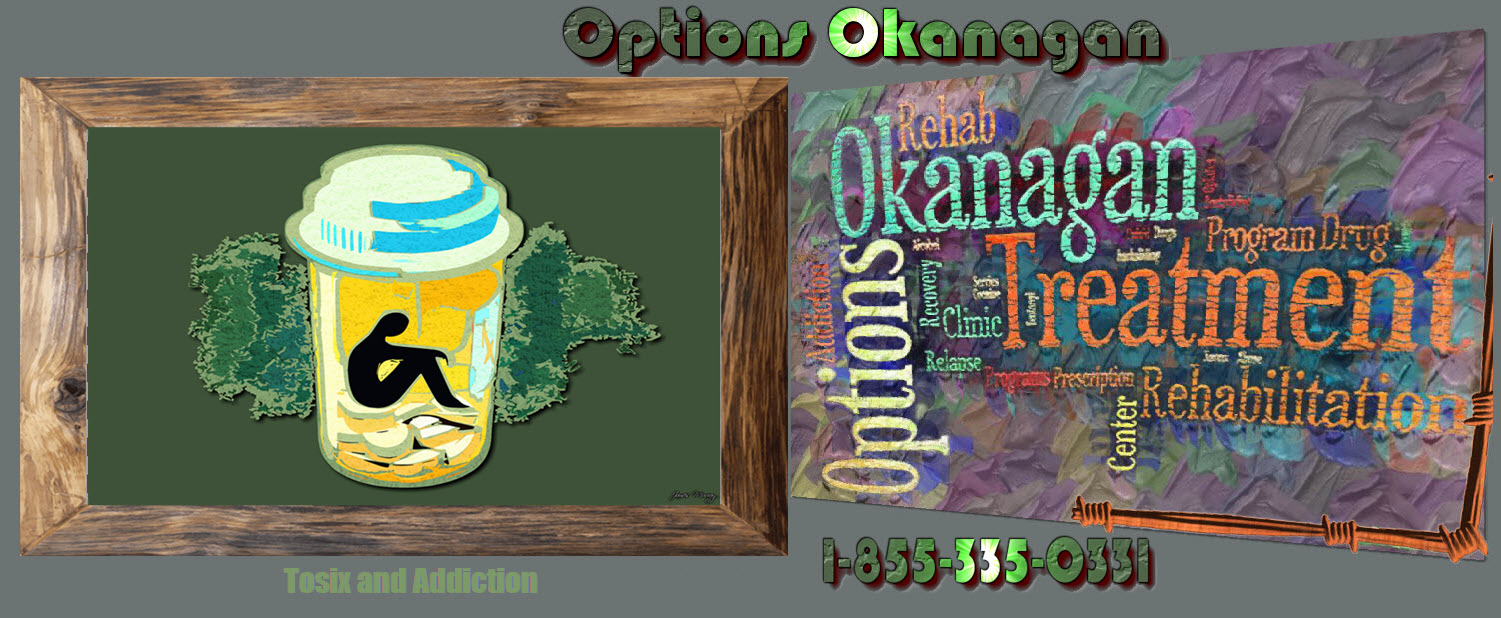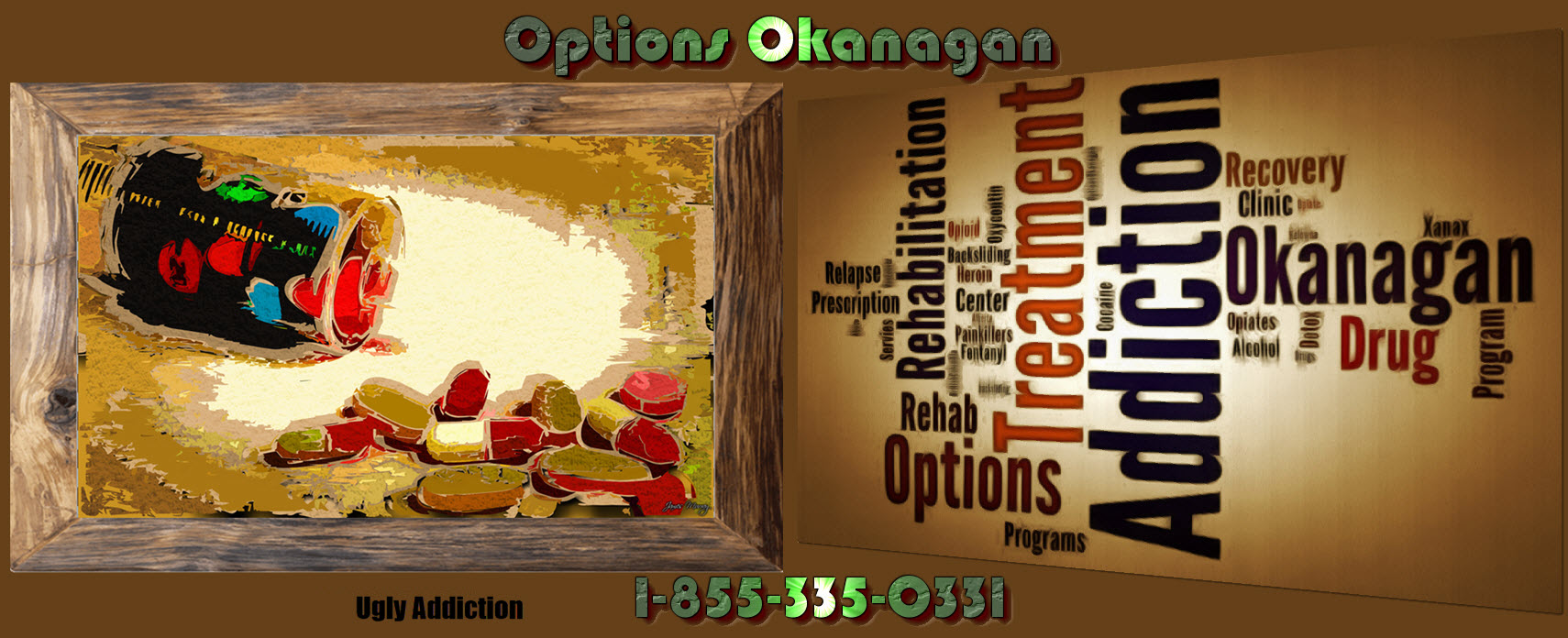Understand drug use and addiction and information on drug, opiate, opioids and alcohol addictions – Drug Rehab Clinics and Programs for recovering addicts in Alberta and British Columbia – Options Treatment Center in Kelowna, British Columbia treating drug, opiate, opioid, fentanyl, heroin, and alcohol addiction and recovery.
Drug Rehabs In Alberta And BC
There are many people who wonder how someone becomes addicted to drugs. For the most part, they believe that drug users have no morals or desire to stop using drugs. They think that if an addict chooses to quit, he or she can make that choice.
However, the truth or reality is very different. Addiction is complex and real disease. Quitting drugs usually takes more than just strong will-power and good intentions to stop using. In general, drugs change how the brain works, making it difficult for a person to break a habitual addiction, even if they really want to.
The good news is that we now have a better understanding of addiction through research and therefore better treatment options that will help people recover from addiction and return to independent, productive, and satisfying drug-free lives.
What is addiction?
Addiction is defined as a chronic disease that is equated with addiction and compulsive drug use. This means that it is difficult to control the demand for the drug and its use, even though we are fully aware of the harmful effects/consequences of the drug. For many drug users, they start using drugs voluntarily. However, repeated use of the drug can cause brain changes that adversely affect an individual’s ability to resist the urge to use the drug.
In addition, changes in the brain can continue. This is why drug addiction is called a relapsing or “recurring” disease. This means that even people recovering from drug-related disorders are always at risk of relapse back to drug addiction, even after years without treatment.
It often happens that the recovery of a drug addict will relapse. However, this doesn’t mean the treatment won’t work. As with most chronic conditions, treatment is most effective as an ongoing effort. What is important is that it is tailored to the patient’s individual needs and progress. Therefore, the treatment plan must very frequently be reviewed and tailored to suit individual needs.
What happens to a person’s brain when they use drugs?
Most drugs interact with and affect the “reward system” in the addict’s brain. They cause feelings of euphoria by flooding the system with the chemical messenger dopamine. The reward system naturally motivates people to repeat the behaviors they associate with pleasure, such as eating a meal, spending time with loved ones, and these are the behaviors that naturally make people feel good.
The ingress of dopamine increases the need to repeat the behavior or activity. Similarly, drug-induced dopamine fluctuations increase the need to take the drug again to create the same euphoric feeling. Therefore, drug users will consume the drug repeatedly, which in turn increases their addiction.
However, the brain adapts to a continuous flood of dopamine. Decreases the ability of cells in the reward chain to respond to dopamine. This means that drug users experience a maximum decrease compared to when they first took drugs. This is known as tolerance.
In their quest to reach the same level as when they first took the drug, drug users are usually led to more drugs. The subsequent increase in drug dose leads to increased tolerance. Unfortunately, brain changes also mean that drug users are unable to enjoy things like sex, food, social activities, and many other activities that should be fun.
Long-term drug use also affects chemistry and brain circuits in general, affecting functions such as judgment, learning, memory, stress, decision making, and behavior.
Despite knowing how dangerous drug use is, many drug users continue to use drugs. That is addiction.
Options Okanagan Opiate and Alcohol Treatment Centers in Kelowna, Salmon Arm and Vancouver, British Columbia – Men and Women are recovering and healing from Alcohol and Drug Abuse at our treatment center here in the Okanagan right now.
Our unique and distinctive Opiate Drug and Alcohol treatment program allows men and women to come in from Calgary as well as Edmonton as we offer airport pickup.
Numerous clients come to us from Vancouver, Calgary, and Edmonton and other locations in Alberta and even other provinces for Opiate addiction treatment, heroin drug treatment, many other drug and alcohol addictions for rehabilitation because of the uniqueness of our treatment center.
Our (Kelowna ) Alcohol and Drug Treatment Program Location:
(Not Mailing Address) Contact Us – Web Page
For Mail Delivery :: Please contact each center for correct mailing addresses, also this location is the location of our residential treatment programs in Kelowna. Please call Toll Free 1-855-335-0331 to contact the treatment center you are going to for the address and directions.
Options Okanagan Drug and Opiate Treatment Center
551 Sherrydale Crescent, Kelowna, British Columbia, V1V 2E6
Toll-Free Phone Number: 1-855-335-0331




